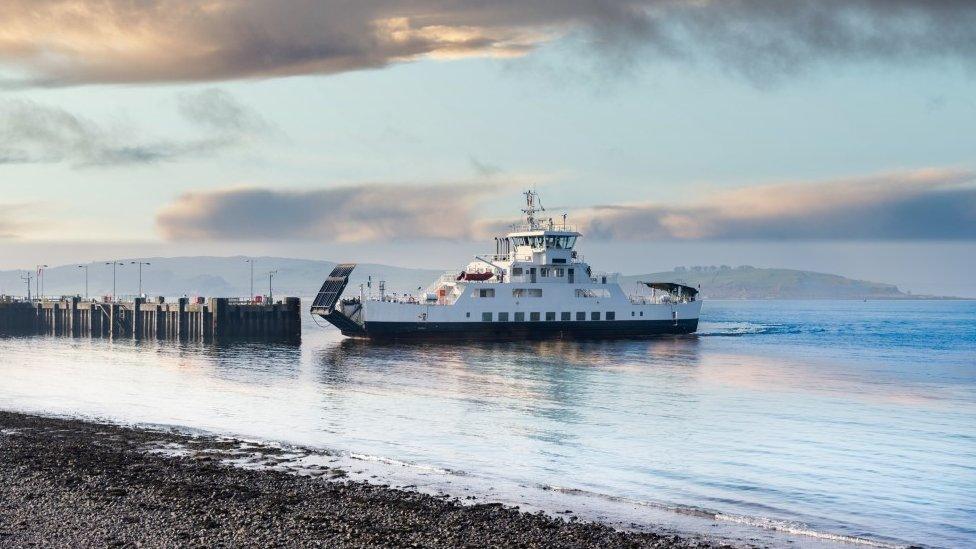Coronavirus: Golfers hid in van to evade ferry rules
- Published

A group of golfers tried to use one to the ferries on the Largs to Cumbrae route to get onto the island
A group of golfers hiding in a van were among hundreds of people caught trying to make non-essential journeys on CalMac ferries.
The "stowaways" were discovered on a sailing between Largs and the Isle of Cumbrae in the Firth of Clyde.
CalMac said people "concealing themselves" in vehicles were among 273 incidents of attempted non-essential trips since 26 March.
The company is operating a reduced service during the coronavirus crisis.
CalMac has limited use of its ferries to essential travel for islanders, key workers and deliveries of supplies.
The measure, which has remained in place following the easing of some lockdown restrictions, has seen passenger and vehicle numbers fall by 95% across its network of 28 routes.
But its staff have had to turn away hundreds of people trying to make non-essential journeys, including day trips. Police have had to be called on some occasions to help ferry workers verify the reason for passengers' travel.
Allow X content?
This article contains content provided by X. We ask for your permission before anything is loaded, as they may be using cookies and other technologies. You may want to read X’s cookie policy, external and privacy policy, external before accepting. To view this content choose ‘accept and continue’.
CalMac said the incident with the golfers, first reported by the Scotsman,, external was one of a number on the Clyde which was a "hotspot" for attempted lockdown violations.
Most people were being refused travel to Cumbrae and the isles of Arran and Bute, the firm said.
CalMac director of operations Robert Morrison said: "As per Scottish government guidelines, travel to our islands remains for essential purposes only.
"We have had some occasions when people have tried to gain passage to or from our islands by concealing themselves in vehicles.
"Anybody found to be doing so will be not be allowed to travel.
"We would again encourage people to behave responsibly and respect the wishes of island communities until guidelines allow for non-essential travel."